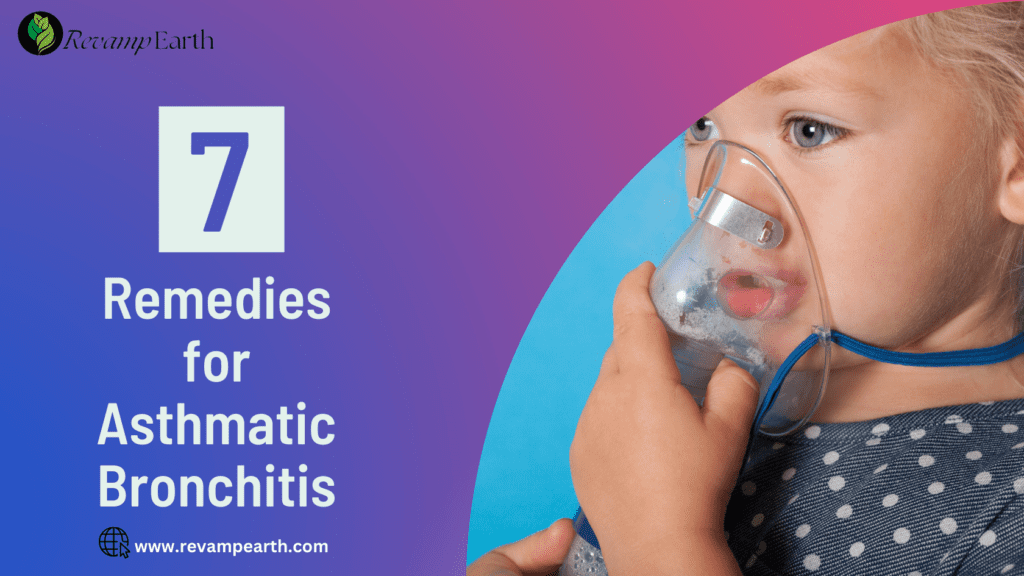Asthma Management Tips: How to Breathe Easier

What is Asthmatic Bronchitis?
Asthmatic bronchitis, also known as bronchial asthma or asthmatic bronchitis, is a respiratory condition that combines features of both asthma and bronchitis. This condition involves inflammation and narrowing of the airways, leading to symptoms characteristic of both asthma and bronchitis. Here’s a closer look at asthmatic bronchitis.
Asthma is a widespread respiratory condition globally, impacting individuals across diverse demographics. With millions affected, it poses a substantial public health challenge. Efforts in research and awareness are ongoing to better understand and address the global burden of asthma, emphasizing the need for comprehensive strategies to improve its management and reduce its impact on populations worldwide.
Possible Causes of Asthmatic Bronchitis:
The causes of asthma are multifactorial and can vary among individuals. Some common factors contributing to the development of asthma include:
Genetic Predisposition: A family history of asthma or other allergic conditions can increase one’s susceptibility.
Environmental Allergens: Exposure to allergens such as pollen, mold, pet dander, dust mites, and cockroach droppings can trigger asthma symptoms.
Respiratory Infections: Early childhood respiratory infections, especially those affecting the lungs, may increase the risk of developing asthma.
Exposure to Tobacco Smoke: Both active smoking and exposure to secondhand smoke are linked to an increased likelihood of asthma development.
Occupational Exposures: Some workplace environments with exposure to irritants or chemicals may contribute to the development or exacerbation of asthma.
Air Pollution: Long-term exposure to high levels of air pollution, both indoors and outdoors, can be a risk factor for asthma.
Physical Activity: Intense physical exertion, especially in cold or dry air, can trigger asthma symptoms in some individuals.
Gastroesophageal Reflux Disease (GERD): The presence of GERD can worsen asthma symptoms in some individuals.
Early Childhood Exposures: Factors such as early exposure to tobacco smoke, allergens, and respiratory infections during infancy can influence asthma development.
Obesity: Obesity is associated with an increased risk of asthma and can worsen asthma symptoms.
It’s important to note that asthma is a complex condition, and a combination of genetic and environmental factors likely contributes to its onset. Individual triggers can vary, and understanding them is crucial for effective asthma management.
Recognizing Symptoms:
Asthma is characterized by a variety of symptoms that affect the respiratory system. These symptoms can vary in intensity and may come and go. Common asthma symptoms include:
Shortness of Breath:
Individuals with asthma often experience a feeling of breathlessness or an inability to take deep breaths.
Wheezing:
Wheezing is a high-pitched or whistling sound produced during breathing, particularly when exhaling. It is a classic asthma symptom caused by narrowed airways.
Coughing:
Persistent coughing, especially at night or in the early morning, is a common symptom of asthma. The cough may be dry or produce mucus. Cough that produces green, white, or yellow mucus
Chest Tightness:
Asthma can cause a sensation of tightness or pressure in the chest, making breathing feel constricted.
Fatigue:
The effort required to breathe during asthma symptoms can lead to feelings of tiredness and fatigue.
Increased Respiratory Rate:
Individuals with asthma may experience an increased respiratory rate as the body tries to compensate for reduced airflow.
Difficulty Sleeping:
Asthma symptoms often worsen at night, leading to difficulty in getting a restful sleep.
Anxiety or Panic:
The struggle to breathe during an asthma attack can trigger anxiety or panic, exacerbating the symptoms.
Decreased Exercise Tolerance:
People with asthma may find it challenging to engage in physical activities due to shortness of breath and other symptoms.
Peak Flow Variation:
Asthma symptoms can cause variability in peak expiratory flow (PEF), a measure of how fast a person can exhale. Monitoring PEF can help in asthma management.
It’s important to note that asthma symptoms can differ among individuals, and not everyone with asthma experiences all of these symptoms. Additionally, symptoms may vary in severity over time. If you suspect you have asthma or are experiencing respiratory symptoms, it’s crucial to consult with a healthcare professional for an accurate diagnosis and appropriate management.

Management Strategies:
Medication: Understand the different types of asthma medications, including bronchodilators and anti-inflammatory drugs, and how they play a crucial role in symptom control.
Lifestyle Adjustments: Explore lifestyle changes such as maintaining a healthy weight, regular exercise, and avoiding tobacco smoke to improve overall respiratory health.
Allergen Control: Implement strategies to reduce exposure to common allergens like dust mites, pollen, and pet dander at home.
Respiratory therapy (asthma breathing treatments)
Inhalants: use inhalants if required.
Exploring Herbal Remedies
While it’s essential to consult with a healthcare professional for proper diagnosis and treatment of bronchial asthma, some people find relief from the symptoms through complementary and herbal remedies. Keep in mind that these remedies may vary in effectiveness from person to person, and it’s crucial to use them under the guidance of a healthcare provider. Here are 7 herbal remedies that have been traditionally associated with respiratory health:
1) Onion & Honey:
Onions, known for their natural properties, have been a traditional remedy for coughs, colds, bronchitis, and influenza. Mix 3 to 4 teaspoons of onion juice with honey in equal parts for a daily treatment. This simple remedy is a safe and effective preventive measure against common colds, particularly during the winter season.
2) Basil leaves, Honey and Ginger:
A decoction of holy basil leaves and ginger (10 to 15 leaves + 1 inch of Ginger) with 1 teaspoon of honey is an effective remedy for bronchitis, asthma, influenza, cough, and cold. Take twice a day for better results.
To quickly relieve influenza symptoms, boil holy basil leaves, cloves, and 1 teaspoon of common salt in half a liter of water until only half the water remains. Drink this decoction for immediate relief.
3) Carom Seeds and Buttermilk:
A mixture of carom seeds and Buttermilk is an effective remedy for relieving difficult expectoration caused by dried-up phlegm.
The seeds are also efficacious in bronchitis. A hot fomentation with the seeds is a popular household remedy for asthma.
Chewing a pinch of carom seeds with a crystal of common salt and clove is a very effective remedy for cough caused by acute pharyngitis in influenza.
4) The leaf of Ajwain ka patta and Ginger
(Other Names: Indian Borage, Cuban Oregano, Mexican Mint, Spanish Thyme):

Note: Ajwain ka Patta should not be confused with the great aromatic kitchen seed herb Ajwain (Carom seeds). i.e. Trachyspermum ammi.
Decoction or juice made from a few leaves and an equal quantity of other herbs like ginger and black pepper can also be consumed to control asthma. This decoction is also used to treat catarrhal infections where it clears the excessive build-up of thick phlegm or mucus in an airway or cavity of the body.
5) Clove with Honey:
Clove is an effective remedy for asthma. A teaspoon of decoction prepared by boiling six cloves in 30 ml of water can be taken with honey thrice daily as an expectorant.
6) Garlic, Honey, and Milk/Malt-vinegar:
Three cloves of garlic crushed and boiled in milk, can be used every night with excellent results in Asthma.
A pod of garlic is peeled, crushed, and boiled in 120 ml pure malt vinegar. It is strained after cooling and an equal quantity of honey is mixed and preserved in a clean bottle. One or two teaspoons of this syrup can be taken with fenugreek decoction in the evening and before bed. This has been found effective in reducing the severity of asthmatic attacks.
7) Long Pepper, Ginger & Black Pepper:
Take equal quantities of the powder of long paper, dried ginger, and black paper thrice daily. It is a proven remedy for bronchial asthma. Know more long pepper and ginger remedies.
References
Rashid Ali, Naseem Ahmed, Muhammad Salman, Sofia Daudpota, Madiha Masroor, Muhammad Nasir (2020). Assessment of Quality of Life in Bronchial Asthma Patients. Cureus 12(10). View
Ganesh S. Kumar, Gautam Roy, L. Subitha, and Swaroop Kumar Sahu. (2014). Prevalence of bronchial asthma and its associated factors among school children in urban Puducherry, India. National Library of Medicine. View
- H.K.Bakhru (1992) Herbs That Heal: Natural Remedies for Good Health. Orient Paperbacks. Delhi, India.
- T.V.Sairam (1999) Home Remedies Vol-II: A Handbook of Herbal Cures for Common Ailments. Penguin Books India.
Dos
Follow Your Asthma Action Plan:
Work with your healthcare provider to develop a personalized asthma action plan that includes information on daily medications, steps to take during worsening symptoms, and emergency contacts.
Take Medications as Prescribed:
Adhere to your prescribed medication regimen, including both daily controller medications and rescue inhalers as needed.
Identify and Avoid Triggers:
Recognize and minimize exposure to asthma triggers such as allergens, smoke, pollution, and respiratory infections.
Monitor Peak Flow:
Regularly monitor your peak expiratory flow (PEF) as recommended by your healthcare provider to track your lung function.
Stay Active with Moderate Exercise:
Engage in regular, moderate-intensity exercise to maintain overall health. Consult your healthcare provider for exercise recommendations.
Maintain a Healthy Lifestyle:
Adopt a healthy lifestyle that includes a balanced diet, regular exercise, and sufficient sleep to support overall well-being.
Stay Hydrated:
Drink an adequate amount of water to keep airways hydrated and mucus more manageable.
Use Air Purifiers:
Consider using air purifiers to reduce indoor air pollutants and allergens.
Don’ts
Ignore Symptoms:
Do not ignore or dismiss asthma symptoms. Promptly address any changes in your respiratory health with your healthcare provider.
Neglect Medication:
Avoid skipping or neglecting your prescribed asthma medications. Consistent medication adherence is crucial for symptom control.
Smoke or Allow Secondhand Smoke:
Avoid smoking, and stay away from secondhand smoke, as it can worsen asthma symptoms.
Excessive Alcohol Consumption:
Limit alcohol consumption, as excessive intake may trigger or worsen asthma symptoms in some individuals.
Overexertion in Extreme Conditions:
Avoid intense physical activity in extreme weather conditions, especially in cold or dry air, which can trigger asthma symptoms.
Delay Seeking Medical Help:
Do not delay seeking medical assistance if you experience a severe asthma attack or if symptoms are not improving with your usual medications.
Ignore Allergen Reduction:
Take steps to reduce allergens in your living environment. Avoid neglecting simple measures such as regular cleaning and dust mite control.
Disregard Regular Check-ups:
Don’t skip regular check-ups with your healthcare provider. Monitoring your asthma and adjusting your treatment plan as needed is essential for long-term management.
Send Us A Message
FAQs
- Asthma is diagnosed through a combination of medical history, physical examination, and lung function tests such as spirometry. Your doctor may also perform allergy tests to identify potential triggers.
- Common symptoms of asthma include shortness of breath, wheezing, coughing, and chest tightness. These symptoms may worsen at night or during exercise and can vary in severity.
- Asthma cannot be cured, but it can be effectively managed with proper treatment and lifestyle adjustments. Many people with asthma can live normal, active lives by following their treatment plan and avoiding triggers.
- Yes, exercise can be safe and beneficial for people with asthma when managed properly. It's important to warm up before exercise and use your prescribed inhaler before starting, if necessary. Consult your healthcare provider for personalized advice.














